#also i ended up doing archetypes instead of tropes but it's the same thing to me personally
Explore tagged Tumblr posts
Note
midnight rain and karma for the midnights ask
🌧 midnight rain : are they a morning bird or night owl? sunshine or rain?
I decided to do all seven Osmond siblings. No one can stop me.
Michael is definitely a morning bird, but also a definite preferrer of rain.
Sariel is a night owl through and through, but prefers sun.
Raziel is a night owl that prefers rain.
Daniel would like to say he's a morning person, but he's actually, like, a mid afternoon person? He prefers sunshine.
Camael moved to London of his own volition. King likes rain. He's also a night owl.
Sedakiel is a mid afternoon girlie who loves the rain.
Dina likes to say she's hardly a person at all, though she's more acquainted with 3am than, say, 6am. She likes rain.
🐱 karma : what tropes do your ocs fit in?
This time I'm only doing Jude Sauer (not mentioned til the second book of the tangoverse) and Sedakiel Osmond. Again because no one can stop me.
Jude: tragic backstory, the fighter, the caregiver, the addict, emotionally repressed, love interest, stand-in parent.
Sedakiel: tragic backstory, obscenely rich, the hedonist, the innocent (in stories not his own), nature lover, narrator, truth-seeker.
#each book of the first seven tangoverse books is from the pov of a different osmond sibling#the tangoverse#also i ended up doing archetypes instead of tropes but it's the same thing to me personally#michael osmond#sariel osmond#raziel osmond#daniel osmond#camael osmond#sedakiel osmond#dina osmond#jude sauer#mer rambles#thanks for the ask !!
2 notes
·
View notes
Text
Random Pieces of Advice About Characters
Sometimes, they mess up. They should. A good character to root for is someone who makes mistakes and tries to make amends for them. Just because they’re the hero or on the “good side” doesn’t make them above reproach. It could even thicken the plot to see how they get out of a bad situation… Or maybe consider not forgiving them at all (I’ll write an essay about morals and ethics someday).
They have a life outside the plot (just like I do outside the office). Show some hints about how their life was before everything started. By giving them layers, just like an onion (thanks, Shrek), you also give them consistency and realism. And maybe people will relate to them. But be careful not to give all the info at once.
Don’t expect your characters to remain the same from the beginning to the end. A good story will shake things up for your characters, even slightly, but enough to make them grow—at least mentally. If they didn’t “learn” anything from their journey, something isn’t working. The whole point of a story isn’t to maintain the status quo. The reader is supposed to grow alongside your characters.
Choose your leader. I advise you to look at the main events of your plot, if you’re of the architect-author team, to see whether it’s best for the MC to take the lead or to be led instead. There’s no good answer except that of logic: if a battle is about to start, it’s better to follow the captain of the guards instead of some random folk who came out of nowhere.
Characters should all have different voices. It’s not only a personality trait; it’s also a part of themselves. They might have different social backgrounds, accents, verbal tics, peculiar slang… Even a group of friends from the same social circle has its own idiosyncrasies.
Sorry, I didn't have time to think up a more detailed article; things got pretty tense at work and I'm pretty tired. Again, I'm open to suggestions if there are subjects you'd like to see addressed.
#creative writing#novel writing#writer blog#writing#writing process#writing help#writing resources#about books and writing#writing advice#writing tips#writeblr#writing a book#fiction writing#resources for writers#writing resource#writer of tumblr#writer problems#writiers on tumblr#writerscommunity#essay#writing tools#writing journey#writing challenge#essays#writing style#books and literature#writers on tumblr#artists on tumblr
243 notes
·
View notes
Note
How do you analyze so good I'm really impressed and honestly wonder if I can learn from you
It's a skill, so the good news is, you can practice and get better at it!
Read A Lot/Gain Context
Analysis often means making comparisons or drawing from external context - one of the best things you can do if you want to be better at analysis is to try to cram your head with as much knowledge as possible. The time period, culture of origin, and where the author slots into those are usually major influences on a work (in Homestuck's case, much of it is a direct commentary on the internet culture it emerged from, and missing that part of it can drastically influence how the story reads).
Also important are the works the author themselves are inspired by. You've likely heard some variation of "nothing is original." We're actually really lucky with Homestuck in that regard, as the work is highly referential, and you can glean a lot by looking at what it references (for example, if you watch Serendipity, one of Karkat's favorite movies, which is titledropped during the troll romance explanation, you will understand Karkat so much better). This applies to things like mythological allusions - you'll hardly know why it matters that Karkat is a Christ figure if you don't know what the general outline of the Christ story is, nor will you pick up on the Rapture elements of Gamzee's religion or the fact that Doc Scratch is The Devil, etc. The key to picking up a lot of symbolism is being aware that the symbols exist.
And last, it helps to read a lot of media and media analysis so you can get a better understanding of how media "works" - how tropes are used, what effect language has, what other entries into the genre/works with similar themes/etc. have already done to explore the same things as the piece being analyzed is doing - and what other people have already gleaned and interpreted. I've mentioned before that many people seem to find Homestuck's storytelling bizarre and unique when it's actually quite standard for postmodernism, the genre it belongs to. But you're not going to know that if you've never read anything postmodern, y'know? I also often prepare for long character essays by reading other peoples' character essays - sometimes people pick up on things I miss, and sometimes people have interpretations I vehemently disagree with; both of these help me to refine my take on the matter.
Try to Discard Biases/Meet the Work Where It Is
Many will carry into reading media an expectation of what they want to get out of it. For example, one generally goes into a standard hetero romance book expecting a female lead, a male love interest, romance (of course), and a happy ending for the happy couple. If the book fails to deliver these things, a reader will often walk away thinking it was a bad book, even if the story told instead is objectively good and interesting. We actually see this a lot with Wuthering Heights, which receives very polarizing reviews because people go into it expecting a gothic romance, when it's really more like a gossip Youtube video spilling the tea on some shitty rich people (and it's really good at being that).
There's nothing necessarily wrong with this when reading for pleasure and personal enjoyment, but it presents a problem when attempting to analyze something. There's a concept called the "Procrustean bed," named after a mythological bandit who used to stretch people or cut off their limbs to fit them to a bed, that describes "an arbitrary standard to which exact conformity is forced." Going into a media reading with expectations and biases often results in a very Procrustean reading - I'm sure we've all seen posts complaining about how fanfic often forces canon characters to fit certain archetypes while discarding their actual character traits, etc.
Therefore, when reading for analysis, it's generally a good idea to try and discard as much bias and expectation as possible (obviously, we are never fully free of bias, but the effort counts) - or, perhaps even better, to compartmentalize those biases for comparison while reading. For example, Hussie talks at length about what they INTENDED Homestuck to be, and, while reading, I like to keep Hussie's words to the side while I try to experience the comic fresh, seeing what choices were made in accordance with Hussie's intentions, or where I think Hussie may have fumbled the messaging. At the same time, I try to let the work stand on its own, set in its proper context.
I'd say this is the number-one problem in fandom analysis. For example, people hear from the fandom that Eridan is an incel or a nice guy, so they interpret everything he says and does to fit that belief, or ignore any contradictory evidence. Or they fall for the character's façade that's meant to be dismantled by the viewer. Some works are fairly shallow and accessible, wearing all their meaning on their sleeve (or are Not That Deep, if you prefer meme-talk), and problems arise when a work is, in fact, That Deep, because someone biased towards the former will discard evidence that a work is the latter. This isn't exclusive to HS - it's happened in basically all of my fandoms - which is a statement to how easy it is to fall into this way of thinking.
Even without knowing that Hussie had coming-of-age themes in mind, for example, characters will talk about being kids and growing up. Knowing that Hussie has explicitly said that that's one of HS's themes serves as extra evidence for that interpretation, but the work itself tells you what it's about - if you're willing to listen to it.
Even If the Curtains are Just Blue, That Still Means Something
This is the next biggest fandom stumbling block - thr insinuation that when things in a work are put into the work without more explicit symbolism, that that means they're a discardable detail. This one is more about making a mindset shift - details aren't discardable, even if they don't appear to have been made with the explicit intention to mean something. Everything kind of means something.
First of all, whether or not the curtains are Just Blue is often highly dependent on the work. For example, in something made in large quantities with little time, staff, and budget - say, for example, one of the entries into the MCU's TV shows - there likely isn't too much meaning behind a choice of blue curtains in a shot (although you'd be surprised how often choices in these constrained environments are still very deliberately made). In a work like Homestuck, however, so terribly dense with symbolism and allegory, chances are, the blue curtains DO hold some special meaning, even if it's not readily apparent.
However, even in cases where a choice is made arbitrarily, it still usually ends up revealing something about the work's creative process. Going back to our MCU example, perhaps the blue curtains were chosen because the shot is cool-toned and they fit the color grading. Perhaps they were chosen because the director really likes blue. Perhaps the shot was filmed at an actual location and the blue curtains were already there. Or, even, perhaps the blue curtains were just what they had on hand, and the show was made too quickly and cheaply to bother sourcing something that would fit the tone or lend extra meaning. These all, to varying degrees, say something about the work - maybe not anything so significant that it would come up in an analysis, but they still contribute to a greater understanding of what the work is, what it's trying to say, and how successful it is at saying it.
And this applies to things with much higher stakes. For example, Hussie being a white US citizen likely had an effect on the B1 kids being mostly US citizens, and there was discourse surrounding how, even though they were ostensibly aracial, references were made to Dave's pale skin. Do I think these were deliberate choices made to push some sort of US superiority; no, obviously not. But they still end up revealing things about the creation of the work - that Hussie had certain biases as a result of being who they were.
Your Brain is Designed to Recognize Patterns, So Put That to Use
So with "establish context" and "discard expectations" out of the way, we can start getting into the nitty-gritty of what should be jumping out at you when attempting to understand a work. One of the most prominent things that you should be looking for is PATTERNS.
Writing is a highly conscious effort, which draws from highly unconscious places. Naturally, whether these patterns are intentional or unintentional is dependent on the author (see again why reading up on a work's context is so important), but you can generally bet that anything that IS a pattern is something that holds significance.
For example, Karkat consistently shows that he's very distraught when any of his friends get hurt, that he misses his friends, even the murderous assholes, that he's willing to sit them down and intervene on their behalf, despite all his grandstanding to the contrary. We are supposed to notice that Karkat actually loves his friends, and that he's lying when he says he doesn't care about them.
Homestuck is very carefully and deliberately crafted; if something comes up more than once, it's a safe bet to assume that you're supposed to notice, or at least feel, it. Don't take my word for it:
Basically, [reusing elements is] about building an extremely dense interior vocabulary to tell a story with, and continue to build and expand that vocabulary by revisiting its components often, combining them, extending them and so on. A vocabulary can be (and usually is) simple, consisting of single words, but in this case it extends to entire sentences and paragraph structures and visual forms and even entire scenes like the one linked above. Sometimes the purpose for reiteration is clear, and sometimes there really is no purpose other than to hit a familiar note, and for me that's all that needs to happen for it to be worthwhile. Triggering recognition is a powerful tool for a storyteller to use. Recognition is a powerful experience for a reader. It promotes alertness, at the very least. And in a lot of cases here, I think it promotes levity (humor! this is mostly a work of comedy, remember.) Controlling a reader's recognition faculty is one way to manipulate the reader's reactions as desired to advance the creative agenda.
But this applies to less deliberately-crafted work, too; for example, if an author consistently writes women as shallow, cruel, and manipulative, then we can glean that the author probably has some sort of issue with women. Villains often being queer-coded suggests that the culture they come from has problems with the gays. Etc. etc.
This is how I reached my conclusion that Pale EriKar is heavily foreshadowed - the two are CONSTANTLY kind to each other, sharing secrets, providing emotional support, etc. etc. It's why that part of my Eridan essay is structured the way that it is - by showing you first how consistently the two interact in suspiciously pale-coded ways, the fact that a crab is shown in both Eridan's first appearance AND his appearance on the moirallegiance "hatched for each other" page becomes the cincher of a PATTERN of the two being set up to shoosh-pap each other.
A work will tell you about itself if you listen. If it tells you something over and over, then it's basically begging you to pay attention.
Contrast is Important, Too
Patterns are also significant when they're broken. For example, say a villain is constantly beating up the protagonist. Here's our pattern: the hero is physically weaker than the villain. In a straight fight, the hero will always lose.
And then, at the mid-season two-parter, the hero WINS. Since we've set up this long pattern of the hero always losing to this villain, the fact that this pattern was disrupted means that this moment is extremely important for the work. Let's say the hero wins using guile - in this case, we walk away with the message that the work is saying that insurmountable obstacles may have workarounds, and adaptability and flexibility are good, heroic traits. Now let's say the hero won using physical strength, after a whole season of training and practicing - in this case, we say that the work says hard work and effort are heroic, and will pay off in the end.
In Homestuck, as an example, we set up a long pattern of Vriska being an awful, manipulative bitch, and a fairly remorseless killer. And then, after killing Tavros, she talks to John and admits that she's freaking out because she feels really bad about it. This vulnerability is hinted at by some of her earlier actions/dialogue, which is itself a pattern to notice, but it's not really explicit until it's set up to be in direct contrast to the ultimate spider8itch move of killing Tavros. This contrast is intended to draw our attention, to point out something significant - hey, Vriska feels bad! She's a product of her terrible society and awful lusus! While it's shitty that she killed Tavros, she's also meant to be tragic and sympathetic herself!
Hussie even talks about how patterns and surprises are used in tandem:
Prior to Eridan's entrance into the room, and even during, the deaths were completely unguessable. After Feferi's death, Kanaya's becomes considerably more so, but still quite uncertain. After her death, all bets are off. Not only do all deaths thereafter become guessable, but in some cases, "predictable". That's because it was the line between a series of shocking events, and the establishment of an actual story pattern. The new pattern serves a purpose, as a sort of announcement that the story is shifting gears, that we're drifting into these mock-survival horror, mock-crime drama segments, driven by suspense more than usual. The suspense has more authority because of all the collateral of unpredictability built up over time, as well as all the typical stuff that helps like long term characterization. But now that the pattern is out in the open, following through with more deaths no longer qualifies as unpredictability. Just the opposite, it would now be playing into expectations, which as I said, can be important too. This gear we've switched to is the new normal, and any unpredictability to arise thereafter will necessarily be a departure from whatever current patterns would indicate.
Patterns are important because they tell you what baselines the work is setting - what's normal, what's standard, what this or that generally "means." Contrast is important because it means something has changed, or some significant point is being made. They work in tandem to provide the reader with points of focus in the story, things to keep in mind as they read, consciously or unconsciously.
Theme
I'm talking about this stuff in pretty broad and open terms because stories are so malleable, and so myriad, and can say so many things. There are stories where horrible cruelties are painted as good things - propoganda is the big one, but consider all the discourse around romance books that paint abusive/toxic relationships as ideal. There are stories where the protagonist is actually the villain, and their actions are not aspirational, and works where everyone sucks and nobody is aspirational, and works where everybody is essentially a good person, if sometimes misguided.
This is, again, why outside context is so important, and biases need to be left at the door. For example, generally speaking, one can assume that the protagonist of a children's cartoon is going to be an aspirational hero, or at least a conflicted character who must learn to do the right thing. However, there are even exceptions to this! Invader Zim, for example, features an outright villain protagonist - a proud servant of a fascist empire - and for a lower-stakes example, the Eds of Ed, Edd, n' Eddy are the neighborhood scammers, constantly causing problems for the other characters with their schemes.
Thus, how do we determine what any particular narrative's stance on a given topic is? It's a difficult question to answer because every narrative is different. If I say something like, "the things that bring the protagonists success in their goals are what the narrative says are good," then we run into the issue of villain/gray morality protagonists. To use moral terms like "hero" and "villain" instead runs into the problem of defining morality within a narrative in the first place. But you have to draw the line somewhere.
So that brings us to themes.
Now, as with a lot of artistic terms, "theme" isn't necessarily well-defined (this isn't helped by the way the word is used colloquially to mean things like aesthetic, moral of the story, or symbolism). Wikipedia says: "In contemporary literary studies, a theme is a central topic, subject, or message within a narrative," but this is still very broad and hard to work with, so I'll give it a shot.
A theme is what a work says, beyond the literal series of events. Sometimes a theme is obvious - the theme of Boy Who Cried Wolf is that if you become famous for lying, you won't be believed when you tell the truth. Sometimes a theme is one of many - for example, Disney's Cinderalla says that kindness and virtue will eventually be recognized and rewarded, and that cruelty is interlinked with ugliness. Sometimes a theme is unintentional - for example, how Disney's body of work tends to villainize queer-coded characters. Sometimes context and the passage of time changes the theme - for example, Snow White originally held a message of hope for wartime families that domestic normalcy would one day return, but is now seen as anti-feminist as it appears to insinuate that a woman's place is in the kitchen, and her happiness is in marriage to a man. And sometimes a theme is not something you agree with.
In any case, a theme is a meaning to be gleaned from the text, more broad and universally applicable than the text itself. After all, we humans have traditionally always used story to impart meaning; our oldest epic, The Epic of Gilgamesh, contains within it several themes, most famously that of accepting one's mortality. It's startling, really, how applicable the story is to this day, even if specific details have become obtuse or unsavory to a modern reader.
This is, again, why it's so important to engage with a text on its own terms, in its own context, with as little bias as possible. A story's themes are not necessarily apparent, and commonly implied rather than stated outright, and approaching the story with expectations can easily lead to a Procrustean twisting of the facts to fit those expectations. A theme should emerge to the analyzer out of the reading, not the other way around.
Identifying theme gets easier with practice, and largely comes down to identifying patterns within the narrative (alongside looking at context and symbolism, of course). What does the narrative consistently touch base on? Are there any references; is there any symbolism? What does the story deem "normal," "good," or "bad"? How are ideas developed, and why? Why did these events happen, and are those motivations echoed anywhere else?
Homestuck is very complex and tackles many topics at once, and explaining why it's a coming-of-age would basically require a whole second essay, so I'll use a simpler and more popular example (like I've been trying to do) - let's say, Shrek.
The most obvious theme of Shrek is that beauty does not equate goodness, that one mustn't judge a book by its cover. The opening sequence is LITERALLY Shrek ripping out pages of a fairy tale book to use as toilet paper, and the movie ends with Fiona finding that her happiest, truest self IS as an ugly ogre. Shrek's main character conflict is that people immediately judge him as cruel and evil because he's ugly, and the characters' lowest points occur because Fiona is similarly insecure about her ogre half, considering it unlovable.
But there's other stuff in there, too. For example, if you know that Dreamworks and Shrek were founded after a falling out with Disney, then the beautiful, sanitized city of Dulac, with its switchback queue and singing animatronics add to this theme of a direct refutation of traditional Disney fairytale values, mocking them as manufactured, inhuman, and even cruel in the way that they marginalize those who don't fit an ideal of beauty. Again we see the opening sequence - defacing a fairytale - as support for this, but also the way that Dulac is displacing fairytale creatures. There's a moment where Gepetto literally sells Pinocchio, which can easily be read as a commentary on the crass commercialization and exploitation of fairy tales Disney likes to do.
And then, of course, there are lesser, supplementary themes. Love being a powerful positive force is one - Donkey is able to rally Shrek after he truly reciprocates Dragon's love for him (which echoes the theme of not equating goodness with beauty, as Dragon is still big and scary), and it's true love's kiss that grants Fiona her happy ending.
And then there's stuff that's unintentional. There's all this work done about how beauty =/= goodness, but then they made the villain incredibly short, which is a traditionally unattractive physical feature. So, does that mean that ugly things can be beautiful unless that ugliness is specifically height?
Sometimes, authorial intent does not match up with result - but in those instances, I think the most is revealed about the author. Modern Disney products tend to be very cowardly about going anti-corporation and pro-weirdness, despite their usual feel-good tones and uplifting themes - and that says a lot about Disney, doesn't it. That's why I think it's still important to keep authorial intent in mind, if possible, even if they fumble what they say they've set out to do.
Obviously, Lord Fuckwad being short doesn't REALLY detract from the overall message - but it's still a weird hitch in the themes, which I think is interesting to talk about, so you can see where personal judgement and biases DO have to be applied. There are two options here, more or less - either one believes that Shrek is making an exception for short people, who are of the Devil, or one believes that the filmmakers did a bit of an oopsie. Barring an outright statement from the filmmakers, there's no way to know for sure.
We can say a work has very complex themes when it intentionally explores multiple ideas very deeply. We can say a work has shallow themes when it doesn't have much intentional meaning, and/or that meaning is explored very lightly. The labyrinthine storytelling of Homestuck, with its forays into mortality, morality, and growing up, chock full of symbolism and pastiche and allusions, is a work with complex themes - especially as compared to the average newspaper comic strip, although they ostensibly share a genre.
We can say a work has very unified themes when these themes serve to compliment each other - the refutation of Disney-esque values, and love as a positive driving force, compliment the main theme in Shrek of not judging books by their covers, of beauty not equating to goodness. Ugly things are worthy of love, and those who push standards of beauty are evil and suck.
Similarly, we can say a work has unfocused or messy themes when the themes it includes - intentionally or not - contradict, distract, and/or detract from each other. Beauty has no correlation to goodness... unless you're short, in which case, you are closer to Hell and therefore of evil blood. To get a little controversial, this is actually why I didn't like Last Wish very much - there are approximately three separate storylines, with three separate thematic arcs, going on in the same movie, none of which particularly compliment each other - so the experience was very messy to me, story-wise, even though it was pretty and the wolf was hot. This is why we feel weird about Disney pushing anti-corporate messages, when they're a big corporate machine, or why it's easy to assume Homestuck was written poorly if you don't like Hussie - we want themes to be coherent, we want context to be unified with output.
Tone
Tone is somehow even harder to define than theme. It's like, the "vibe" of a work. For example, you generally don't expect something lighthearted to deal with the realistic, brutal tragedies of war. Maybe it'll touch on them in light, optimistic ways, but it isn't about to go All Quiet on the Western Front on the reader. By the same token, you don't expect fully happy endings out of the melodrama of opera, or frivolous slice of life from something grimdark.
Tone, too, is something people often wind up Procrusteanizing, which makes discussion difficult if two people disagree. If I read Homestuck as unwaveringly optimistic, with its downer ending the result of an author fumble, I'm pretty much going to irreconcileably disagree with somebody who reads Homestuck as though it's always been a kind of tragedy where things don't work out for the characters. Since it's even more difficult to define than theme, I'm not even really going to bother; I just felt like I had to bring it up because, despite its nebulosity, it's vital to how one reads and interprets a text. Sometimes I don't have a better answer for why I dislike a certain interpretation other than that it doesn't suit the work's tone. I generally try to avoid saying that, though, because it winds up smacking of subjective preference.
In summary... analysis is about keeping everything in mind all the time! But i swear, it gets easier the more you do it. Happy reading!
123 notes
·
View notes
Text
Kang Haesol and the Stoic Male Lead Trope (In the context of Roles Reversal)


All right, I have been seeing constant discussion about Haesol and it really lets me understand that most of y'all don't understand Kang Haesol as a character (Or you just don't have common sense) and that genuinely boggles my mind while letting me know that many people do not read Shoujo and do not understand Shoujo tropes because if you did you would understand her a lot better.
So I'm going to be breaking down the one Shoujo trope you have to know to understand Kang Haesol as a character.
Stoic male lead.
Yeonwoo's Innocence is not only a roles reversal but it is also a Shoujo deconstruction. If you read a lot of Shoujo and romance in general you can pick up on this pretty quickly. Therefore pretty quickly you should understand what type of character Haesol is.
Kang Haesol is the stoic male lead. Given this is RR she is the female lead but this does not change on account of her gender.
This male lead archetype are the ones who do not speak their emotions. They show them instead through action. THAT! is the character archetype that Haesol is based around.
Another thing about these Stoic characters is that they are obsessive. That is a constant trait that all of these stoic characters have in common and it makes a lot of sense given that because they constantly repress their emotions. When something happens and they lose their grip they are going to blow up and show themselves in ways that are not all that pleasant. (All that emotional repression does something to you and it's only a matter of time until it blows up)
The thing about Yeonwoo's innocence is that typically when this trope is put in a Roles Reversal setting the female lead is not exactly like the stoic male lead that is her counterpart. In an RR setting the female lead who is a reflection of this archetype is typically watered down and made a more feminine version of this archetype that loses all its flavor. as the story goes on but Yeonwoo's innocence does not do this.
Kang Haesol is a genuinely stoic character. She is not going to get all blushy and emote because she is STOIC! The Definition of stoic is someone who shows little to no emotion. Kang Haesol is the personification of this trope in female form and You all need to understand that. If you're expecting her to become some cold beauty who ends up a housewife or whatever TF don't. That is NOT her character and it never will be.
With Stoic characters, you have to actually pay attention to them to understand them. You have to WANT to understand them to be able to peel back the different sides of their personalities and Haesol is perfect for this. If you just look at her surface level you see nothing but a stoic person.
But if you actually LOOK at her and how she interacts with the world around her you understand her a lot better.
That is the appeal of The Stoic archetype. That mystery of who they are is what draws Shoujo readers to them and what makes them such interesting characters.
Kang Haesol is the female version of this archetype so don't treat her any differently. You don't tell male stoic characters to smile more or show more emotion so don't do the same to her.
Kang Haesol throughout the story stays consistent and her personality is still at its core that typical stoic male lead archetype. She's the perfect stoic character.
That is until she meets Yeonwoo.
Love at first sight is also a stoic male lead thing and it is done perfectly in this manhwa. (ah we love it when the calm one loses their marbles)
A character who has their emotions mostly in control but one person (that love interest) throws a retch into their usually calm waters.
Here's the thing though. Haesol is different.
Haesol has no grasp on her emotions. She can not perceive her emotions because of her trauma and how being a child model affected her (those who say we know nothing about her need to read the manhwa again because her backstory is literally thrown in your face in multiple moments of this manhwa) she can not understand her emotions because it is the coping mechanism she developed while she was being abused. If she showed emotion she was punished for doing so. So of course she locked them away. Then being with her mother only made things worse because she never truly cared enough to actually help Haesol and instead hurt her even more.
Which only made her retreat further.
Then she meets Yeonwoo.
Then she felt emotion.
Unbridled, overwhelming, EMOTION! for this "girl" and the confusion of it makes it worse. The confusion of why she's unable to get this "girl" out of her head and why everywhere she turns she sees this beautiful person wherever she turns confused and deludes but excites her.
Then she finds out that "she" is in fact a "he" and that she has a chance (Not like she wouldn't have a chance with a girl like have we seen her?)
Of course, she's obsessed!
Of course, she wanted to get closer to him. Of course, she will use whatever excuse she can to get near him.
Of course, she wants him desperately! He's the first person to elicit such strong emotion from her and it's positive! Not only is it overwhelmingly positive but it's all consuming and she's terrified because she's never felt this before.
Of course, she hides it away and shows nothing when showing emotion has only ever led to disaster.
Now that that is out of the way, the reason why I wanted to explain this is because people don't seem to understand her character, especially in relation to Yeonwoo.
Understand that this is a Shoujo deconstruction and a roles reversal manhwa. (it's a good one as well. the most well-written one I've ever read)
This is a two-in-one so unless you have experience with Shoujo/ romance and works that deconstruct popular tropes you most likely won't understand many of the things that are being done in this month.
Haesol very clearly is obsessed with Yeonwoo.
It is painfully obvious and you don't even need to reread it to understand that. (though his manhwa has insane reread value) The moment you get to the scene where she turns around after Yeonwoo asks to go to the amusement park with her you should already have alarms blaring (if you read Shoujo) because you understand that's not what a stoic character would typically do.
In Shoujo, the first meeting with the stoic male lead most of the time is very one and-done. The stoic male lead most of the time does not turn back and ask the female lead anything much less talk to her.
It is mostly their second interaction that does that.
However in Haesol and Yeonwoo's interaction not only does she give him her umbrella but she also engages in a brief conversation asking if he's ok. Sure it's small and bearly a minute but it still matters. If you understand the context surrounding that scene you're going to understand that her giving him her umbrella means that she calculated that he has to give it back to her.
Furthering their conversation... and making sure she gets to talk to him again.
There are so many little details that have been put into this manhwa that need to be talked about more because this is just one of them.
Haesol is a character whom I've said multiple times you need to look at her actions and not her words if you want to understand her as a character.
Also given that she is a Stoic character her obsession is going to be deep, it is going to be unhealthy, and it is not going to be in any way light.
Given the fact that Yeonwoo in fact enables these tendencies of hers you all need to understand that is going to likely get worse. Not in a bad way Shoujo has a tendency to make obsession like this completely viable (as we should let the girls have their fun. I personally love it and fall for it hook line and sinker) but given that this is Esol we are talking about she will probably twist this trope on its head in some way shape or form.
In all honesty, I'm just sick and tired of people constantly making horrible takes about Haesol as a character when it is clear they do not understand who she is. It is very clear that you do not read Shoujo or consume romance in general because most of these takes would not be happening if people actually understood the context of the genre.
#discussion#shoujo#yeonwoo's innocence#manhwa#romance#shoujo manga#shoujo manhwa#anime#manga#yeonsol#josei#josei manga#josei romance#shoujo but roles reversed and it's glorious#Yapping 101
27 notes
·
View notes
Text
ok hi guys i have. genloss thoughts.
so we've seen a few different "archetypes" for characters, right? we have the hero (ranboo), the side characters (charlie and sneeg), the antagonists (the puzzler and demon charlie), the background characters (niki, austin, etc), and who i'm calling the crew (the ghouls & rats, the cameramen, and the drones). (hetch is his own thing but i will Get to him, also security and squiggles.)
all these archetypes are very distinct, there's not a lot of overlap between them (the only exceptions i could think of would be frank, who doesnt really count since he's not. yknow. alive. and rat-rae, who has speaking lines, but is still obviously crew.)
i'm thinking, these archetypes almost seem like... a life cycle. let me explain.
first, showfall finds a Hero. they need to be naive, blinded by fear and hope. so the Hero needs to be the first step. and there are three directions the Hero can go after that.
if the Hero is just... boring, uninteresting, going through the motions, they become Crew. the masks (or the goo, in the case of the ghouls) control them permanently.
if the Hero goes the way ranboo did, there are two options. either they die, and stay dead (or restart, becoming a Hero again), or they live and move on to the next step - becoming an Antagonist.
Antagonists have more freedom than Heroes (squiggles outright says they let the puzzler do whatever he wants), but they're still under showfall's control. the freedom is helpful because it makes them more interesting, but it also makes them unpredictable.
once an Antagonist has run their course, there's three options again. if they're too complacent, they become Crew. if they're too volitile or if showfall needs some drama or a Hero needs a win, they die. but if they prove to still be useful, they move on. they become a Background Character.
seems like a weird jump, right? but we saw it happen, with charlie. he died as demon slime, then reappeared as patient charlie.
also, i think this is the reason neither Antagonists lasted more than an episode. they need a lot of Background Characters, so turnover is quick.
by the time Background Characters arrive, they have developed personalities. or, more accurately, a single trait that showfall can monopolize on. charlie was slimy. niki was nice. austin was gay (a nice nod to the token gay trope, btw). and Background Characters switch up the formula a bit.
i think, by the time you get to this point, you aren't at risk of becoming Crew. or at least, it isnt likely (i'm thinking rat-rae was a BG Character who got turned into crew, which is why she can talk). no, instead, your two options are as follows:
you can stay a Background Character, "dying" and being reset every episode.
or, if you're a fan-favorite, you get upgraded to Side Character.
again, we saw this happen with charlie, and also with sneeg. i believe sneeg became a Side Character between episode 1 and 2, which is why he was allowed to see beyond the 4th wall. gotta have your characters be a little haunted, right? it's a horror show, after all.
and if you become a Side Character, there's not a lot of places to go. viewers will recognize you in different shows, so the question is - what does showfall do when a Side Character's show ends?
once again, they have two options. death or promotion.
and this time, the promotion is a little different.
so. hetch. a villian for sure, but he's in a weird position. he tells ranboo - and the viewers - during the final scene that he's just following orders. he wears his own mask, same as ranboo. but why? why have this weird, semi-canon, rebel traitor figure?
i think hetch made it to the final archetype. a subsection of Crew that's picked out for a special characteristic. anything that makes them truly compelling. i think the wire monster made it here, too (they were so consistently rebellious that showfall had to strip away all of their humanity, leaving them a mess of wire).
hetch became a Mascot.
hetch, the wire monster, and squiggles went through every step, proved their worth, and what did they get in return?
knowledge, but not freedom. never freedom.
and i think if we'd voted live, ranboo would have made it all the way as well.
#the kings decrees#genloss#genloss spoilers#gl!ranboo#genloss theory#long post#im going insane over here guys#you dont understand#it's a cycle... all of them are disposable... cogs in a machine... you dont understand!!!#inspired by watching charlie go from Silly Guy to Sillier Guy to Oh God I'm Going To Die Here#genloss archetype theory
58 notes
·
View notes
Text
i think the problem with a lot of fictional romance is that, despite all build-up that may have happened, once the two finally get together... they begin to lose that edge of what made their dynamic interesting. it's disappointing enough when it happens within the game/movie/show, but then irritating when 'fans' choose to flatten them to fit into the same rehashed tropes they feel any 'couple' should involve themselves in...
...which is so disheartening to see when there are definitely interesting scenarios uniquely built from these characters' situation! things so specific to them that it'd be a struggle to find a similar scenario/dynamic/dialogue beats between any other character you may be a fan of, even if they fall into a similar narrative archetype. there are such small things indicative of the characters themselves they should be given the chance to explore together. even if they're still reserved and thus reluctant to admit as much aloud, there would inevitably be a shift when someone else takes to their side. whether it's introspection or within action or whatever else, there's still so much more to explore within its setting/further character study.
but, unfortunately for many, the end goal of 'being together' indicates they are no longer characters in their own right, but instead "a couple" - and that is all they remain as, unfortunately... as though that's where their relationship ends, instead of further building upon their established bond.
i feel it's a part of the reason i've noticed so many people attach themselves to 'slow burn' or 'childhood friend' sort of stories. what makes it interesting is the fact there is so much range to explore these characters and what this budding new relationship may mean to them, in many of these it may be the focus of the story, but... ironically enough, it also leads to many people jumping to imagined scenarios of the two finally getting together to do 'couple things' together. due to their adoration for the original scenarios the characters are put through to show/strain their love, they want to write for these charming characters, but just. either seem to miss what makes them so compelling, or haven't the confidence to write such scenarios, or simply find it more enjoyable to place intense focus on the domesticity alone once they allegedly, inevitably, get together (even at the cost of characterization... i feel there's a fine line between someone mellowing out and to completely rid their fangs, yes?) and it's just a little dreary to see these characters so flattened once people feel there's nothing else to be done once the relationship is 'official'!
#aegehaha hope this makes sense... to be honest. i'm not a ''ship'' person anyway so x']#within the last. nine? years or so. i've only been deeply attached to four fictional relationships#that did not include my ocs; mimistasia/lurien+butler/kaishima/safamaple. other than them... no one really comes to mind :P#i enjoy some; sure! i'm neutral/leaning positive with a lot & if a friend brings it up i'm usually detached yet fond...#jestersvaguely
14 notes
·
View notes
Text
Book Review 47 – The Gods Are Bastards Volume Two by D. D. Webb
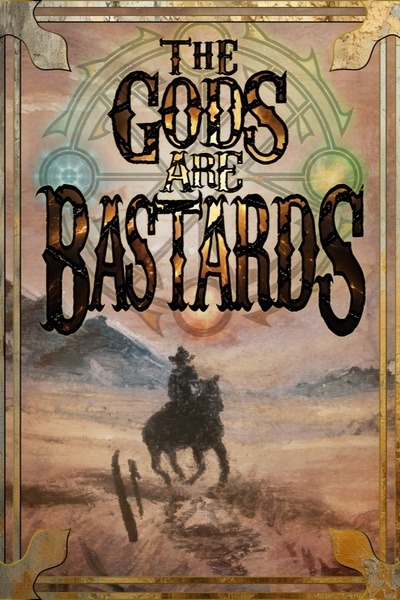
Being entirely honest I read the first four volumes of this in a sprint, but I’m spacing out the reviews with things I read afterwards in between for variety and (honestly) to help keep each distinct in my head.
So, for context, Volume 2 is comprised of books 5, 6 and 7 of an incredibly longrunning web serial. You can find my thoughts on Volume 1 here. The serial follows a set of college students/novice adventurers of improbably vast power and (much more interestingly) a sprawling cast of supporting characters in a world that’s best described as ‘generic D&D fantasy setting on the tail end of the magical industrial revolution’.
While the main plotlines still (unfortunately) follow the freshman students of the Unseen University as they get assigned various character-building fieldtrips that are in fact life-or-death struggles for everyone else involved, I find them much less abrasive in this volume than the last. Not not abrasive, but the trendline is positive – partially because most of them have gotten real character development and partially because, while all the conflicts they got tangled up still involved comically massive power differentials with them being on the wrong side of them to be sympathetic or worth rooting for, they were at least usually not settled through preordained and tension-less contests of violence. Special callout to Juniper, for a slow evolution out of just being the incarnation of the Male Gaze is prose form, and Tris, who is not a mostly non-murderous racist and sometimes a really tryhard ally instead.
Anyway, the actual reason to read this continues to be the other subplots. This volume was great for Bishop Darling and Archpope Justinian, and introduced what’s probably my favourite pair of sets of secondary characters in the entire serial – the two rival adventuring parties ostensibly working the Bishop and Archpope (note – Darling does also theoretically work for the Archpope) who keep getting sent after the same thing and spend more time fighting each other and scheming about their ostensible employers than they do actually adventuring. They’re all two-dimensional comic archetypes of high level fantasy adventurers/western gunslingers/steampunk gadgeteers on hand, and a dragon, succubus, magical assassin, and just kind of asshole mobster on the other. They’re all a bunch of absolute drama queens and I love them all so much.
The serial is clearly hip-deep in references to and in conversation with tropes that I, despite the millions of words of web serial I read a year, am basically ignorant of. This was particularly clear with the book where the students got sent into the dungeon beneath the school because, well, that’s what adventurers do (intelligent dungeons! Spontaneously generating ‘monsters’! Instances!). This had my favourite setpieece involving them in the entire story so far, but also does kind of mark the point where I’m starting to get annoyed waiting for the serial to actually do something with all the fucked up generic fantasy worldbuilding conceits instead of just occasionally nodding at them but otherwise taking them as read.
I trust that the story actually has intentions for thedissonance between end-of-book denouncements where the characters almost look at the camera and explain the lessons they learned this month and Teal massacring demons trying to surrender to her and then being comforted and supported as her friends explain that demons can’t be trusted to surrender and killing them all is really the humane thing anyway, but it’s getting to be a bit of a wait for it.
Anyway, still very much compulsively readable. This worldbuilding got much more detailed and less broad-strokes-D&D this volume, with generally good results. I basically axiomatically get bored with extended action sequences, but as far as they go the one that took up most of Book 7 was quite well done.
15 notes
·
View notes
Note
25th hour and city of thieves I never read the book so why did you compare them to jaime jon and ygritte
eeeeh it's been years since I dealt with either and god why do I even have to admit benioff can write when he wants to but anyway
25th hour has nothing to do with asoiaf it's just a really good script and it turned into a really good movie
the thing with city of thieves is... okay tldr the basic plot is two russian men (lev and kolya) are taken prisoner during the leningrad siege and are promised freedom if they manage to find eggs to bake a birthday cake for the daughter of the guy who arrested them (obv hard to find during a siege where everyone was dying of hunger), they go around trying to find the eggs, at some point they go out of town in this mansion where they supposedly had a bunch of chickens and it turns out that the mansion is full of girls who were kept there as nazi prisoners for you can imagine which reasons, they team up with the local partisans to save them, the partisans include a young girl named vika who is v good at warfare and eventually falls in love with lev, blah blah blah not spoiling things but at the end they have to separate then *she* finds him post-war bringing eggs, he tells her they can make an omelette and she replies she can't cook, that was your basic plot thing is, lev is a 17yo bucket of walking angst who has Issues because his father was arrested and deported by the government because he was too much of a free thinker for them and jewish, bad combination when it comes to stalin government (as far as I recall), doesn't really want to admit that he might be dead-dead at least in the beginning, doesn't talk too much and isn't too social, also being jewish he already felt singled out and like he had to mix/blend/be better than his father or smth like that kolya was taken prisoner for being a deserter, doesn't appreciate authority all that much, cracks bad jokes all the time and irritates lev bc he doesn't take shit seriously except when he gets serious when it comes to saving the girls used as unwilling prostitutes, if I don't recall wrong he was extremely attractive/charming vika basically was going guerrilla stuff, was a better shot than them, went at lev every other moment like I know way mroe than you about stuff (which she did btw), was the one pursuing him more actively and I don't remember if she was a redhead or not but like... the personality fit the bill now like idk if it was obvious from my bad summary and ofc there were differences (like for one kolya had a nice active sex life with a bunch of female friends instead of yknow toxic rship with his twin) but when it comes to character archetypes/personalities lev and jon were pretty much the same deal from the teenage angst to the daddy issues to needing to keep the family name honorable, jaime and kolya had a good 70% of basic traits in common and vika and ygritte were the exact same type including the romance where they make the first move and not being stereotypical feminine which is why idg why the fuck benioff managed to write a book with three main chars that are the exact same archetypes as jon jaime and ygritte with the obvious differences and then completely fucking up adapting jon/jaime in the series because if he could write city of thieves there is absolutely no way he actually misread the og characters nor didn't realize what they were there for so...................... ¯\_(ツ)_/¯ idk and I guess I never will but if I wrote an asoiaf au of city of thieves with that recast no one would bat an eyelid, I compared them because they're the same tropes obv written different and in another context but it was so glaringly obvious I'm still asking myself wtf went wrong there almost ten years later
anyway as much as it pains me to say city of thieves was actually a pretty good book so like idk if anyone feels like obtaining it through whichever mean they find most ethical when it comes to maybe or not financing benioff it's not a waste of your time
#ask post#megashadowdragon#city of thieves for ts#1#2#3#4#5#anti-lannincest#anti lannincest#i hate that i liked it but eh#it... was actually a good book what do i even say
2 notes
·
View notes
Text
How Magnificent Ms. Marvel deconstructs the "Chosen One" archetype
One element of the Destined arc from Saladin Ahmed's run on Magnificent Ms. Marvel that I find interesting is that it actively subverts orientalist and imperialist tropes present in sci-fi "chosen one saves alien planet" narratives.
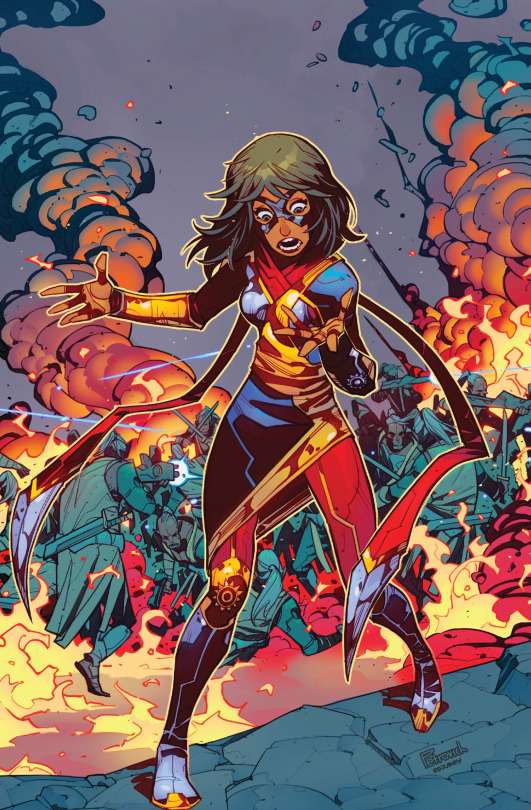
Specifically, the whole idea of a human being whisked away to rescue an entire alien civilization from their own despotic dictator was heavily popularized by the comic-strip/serial show Flash Gordon, which was infamous for its usage of racist Yellow Peril tropes. Like not only was the main antagonist of Flash Gordon, Ming the Merciless, an overtly Yellow-Face Fu-Manchu caricature, but even the name of the planet he ruled, "Mongo," sounds awfully similar to the real-life Asian country of Mongolia. And this is made even more uncomfortable by the fact that Flash Gordon himself is the stereotypically glorified blonde-haired blue-eyed white male, and both the strip and serials portray him as liberating and conquering the planet Mongo from the obviously Asian-coded villain.

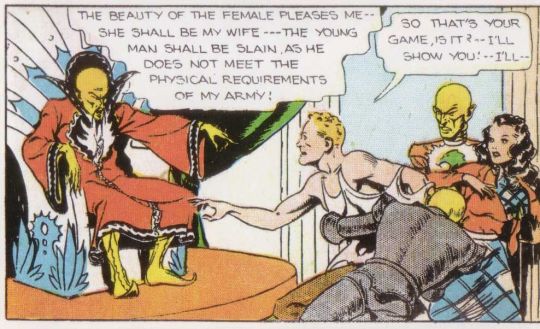
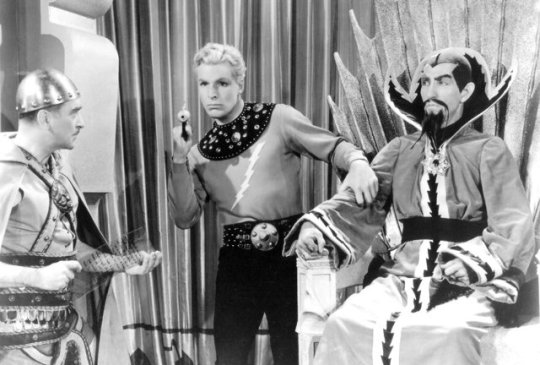
So yeah, there are definitely some imperialist and orientalist trappings within the "human saves alien planet" narrative. However, while the Destined arc of Magnificent Ms. Marvel is clearly modeled after this archetypal narrative, there are plenty of ways in which it both subverts and deconstructs this type of plot IMO. Immediately right off the bat one of the key methods in which Destined avoids the same White Savior trapping as Flash Gordon does is through the fact that although the protagonist Kamala Khan is an American, she's simultaneously a brown Muslim Girl who comes from a first-generation Pakistani immigrant family. So that alone already subverts the traditional "chosen one/savior" archetype by having the main character be a woman of color instead of a white man. Plus the author of Magnificent Ms. Marvel, Saladin Ahmed, is a Lebanese-American Muslim, whereas Flash Gordon's creator, the late Alex Raymond, was a white man.

Furthermore, what also helps the Ms. Marvel arc is that even though the alien civilization of Saffa which Kamala and her parents visit is clearly modeled after Arabic and Middle Eastern cultures, it avoids the orientalist trappings since this coding reads much closer to Kamala's own Muslim identity and the story even draws direct parallels between the two. While of course Pakastini and Arabic cultures are not the same and bear distinctions between each other, there is still some overlap between them especially through shared Islamic traditions, which is a huge deviation and contrast from the clearly all-American Flash Gordon versus the obviously Yellow-Peril inspired Ming the Merciless.

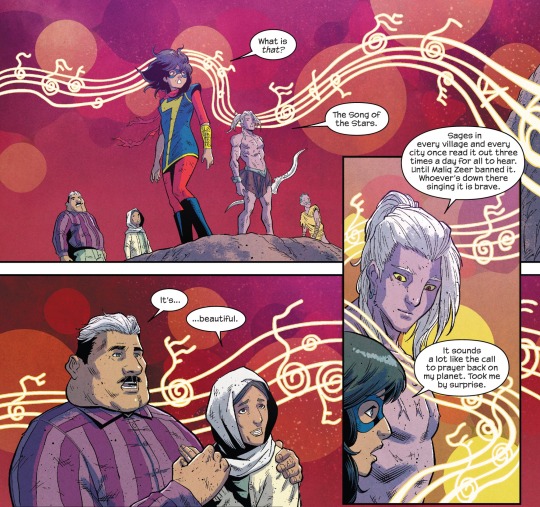
Lastly, in an interesting twist it's actually not the theocratic dictator which Kamala saves the planet Saffa from, but rather from the invading hordes of a rival alien empire who were mentioned in the the "Destined One" legend that the Saffans' believed Kamala was a part of. And the Saffan dictator, Maliq Zeer, who was previously built up in the narrative as the traditional final boss ends up putting aside his own evil agendas in order to prevent his planet's annihilation.
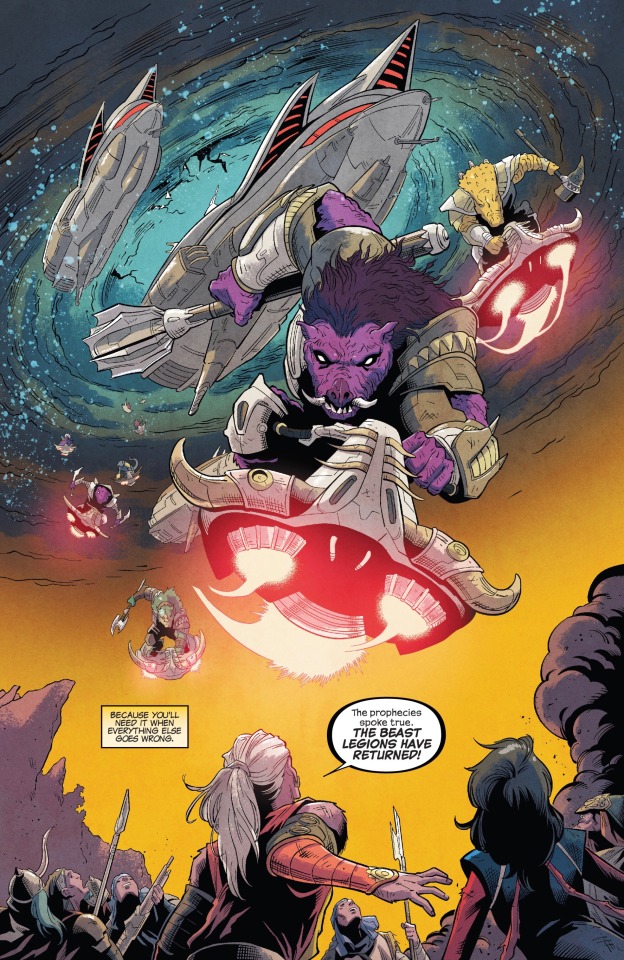
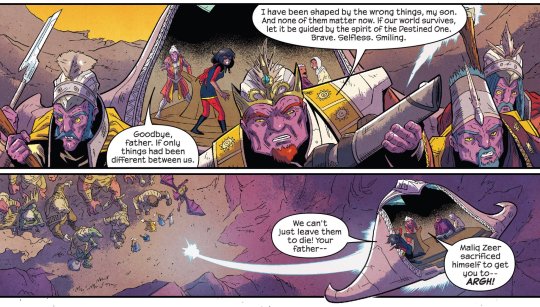
Plus, the entire story is focused on deconstructing the chosen one trope by examining how various other characters view Kamala as a hero, as well as her own struggles with this sort of glorification whilst still trying to protect others simply because its the right thing to do.

And while I've seen some people argue that the Saffan's "magic = Islam" which therefore "intrinsically roots violence in their beliefs and has such messed up connotations," it's outright stated or heavily implied in the Destined arc that that Maliq Zeer and his priest's version of the "Destined One" legend was a perversion of the planet's normal belief system to amass their own political power, which said dictator is willing to put aside when the Beast Legions from the legend return in the arc's climax. Heck, even the aforementioned "call for prayer" that Cheb Hura (Maliq Zeer's son and the leader of a band of rebel freedom fighters) mentioned previously was coded as something positive rather than negative since it was banned by the theocratic dictator.
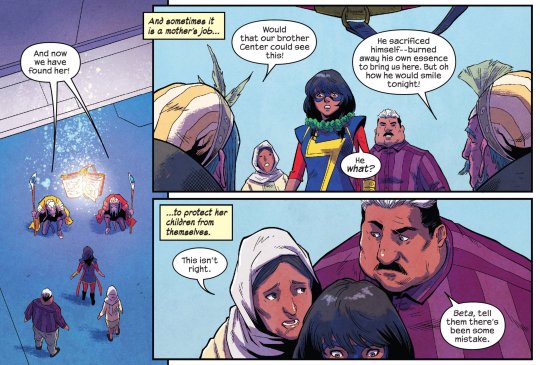

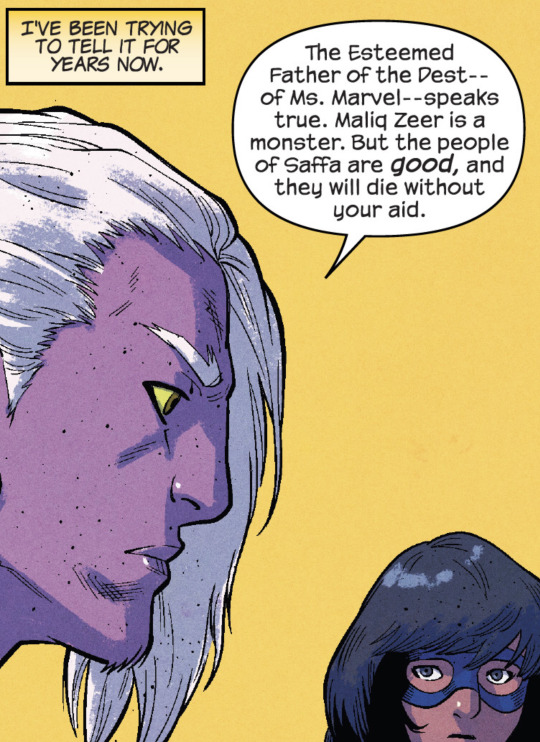

So overall, I personally felt that while Saladin Ahmed’s Destined arc was playing with the “human saves alien civilization” narrative that was typical in old sci-fi serials like Flash Gordon, he simultaneously avoids a lot of the problematic white-savior and imperialist/orientalist tropes which also predominated those older stories due to Kamala’s own status as a Pakistani-American Muslim girl, the subverting of the tropes found in these kinds of narratives, as well as the overall framing around the Arab-coded alien civilization.
#mini essay#ms marvel kamala khan#kamala khan#ms marvel#magnificent ms marvel#yusuf khan#muneeba khan#cheb hura#destined#destined one#sword of saffa#saladin ahmed#minkyu jung#flash gordon#marvel comics#cw: orientalism mention#cw: imperialism mention
15 notes
·
View notes
Text
speaking of plvaa we just started the final trial so thoughts on it so far before we actually get to the ending!! Under cut :-3
so overall the game has been VERY fun. bear in mind that I've been playing with octavius which makes games both more fun and funnier had I played them alone, so my opinion is a little rose-tinted a la having fun with my friend. HOWEVER. ive found the story and mysteries really fun and engaging!!! some of the twists have been pretty easy to call but i don't think that's necessarily bad? other than espella being bezella. that one is like comically obvious. but like the twist of both maya and layton being presumed dead?? that was fucking bonkers and i loved every minute of it (though it was obvious neither of them would 'stay dead'). i ALSO really liked the segment where Luke was a witness; it worked really well as a show of his character as well as a story beat. I'm always a sucker for distrust between good friends due to circumstances and it hit just the right pitch of desperation to be really really fun.
i think gameplay-wise it's a nice mix of both series, with the investigation portions taking after layton and the court parts taking after ace attorney (obviously). the hint coins in trials is a really nice mechanic & being thrust into an environment with new rules other than what seems most logical is a really fun way to play off the ace attorney format of solving cases.
I've had a running argument with otto that it's not actually magic and I'm genuinely excited to see how it goes. I still am convinced it's all just some incredibly convoluted plot a la unwound future or curious village or. any of the Layton games, but theres just enough doubt in my mind that it's compelling to consider. Im really excited to see how the final mysteries pan out...
visually the game looks pretty nice! though I do agree with the common sentiment that the styles clash a bit (every time we see phoenix in a cutscene surrounded by labyrinthians he looks SO out of place, or the one scene where phoenix and espella are talking and luke looks copy-pasted in). I would've loved to see the whole game in the Layton style, considering most NPCs trend that way anyways. It makes the more ace attorney-styled ones stick out like sore thumbs, like Greyerl and Mystere. Though it's so odd that most plot-important NPCs so far have been ace attorney styled, except for Kira? It caught me a bit off guard. But, even with the style mismatch, it still holds together.
I did want to talk about my disappointment with Greyerl though. Ive never been a fan of the 'secretly a girl/boy but posing as a different gender for REASONS!!' trope, more often than not because it's a) Easy to clock and not very interesting and b) Tends to lead into weird transphobic territory, a la "he's ACTUALLY a SHE?!?;?" or vice versa (or, in more annoying cases, like robin newman from dual destinies, flipping a switch in their behavior and suddenly presenting the complete opposite way. though i will admit i liked robin as a character). It kind of annoyed me with the whole thing. Either way, it was a smaller thing that didn't really impact my enjoyment all that much, but I still wanted to address in some way. I liked that Greyerl got to say it themself instead of being completely forcibly outed this time, but the whole thing with the unpinning of the hair was pretty dumb to me. I think their design could have stayed the same either way; an androgynous butler is not that strange of a character archetype, and makes way more sense than them just. Having extremely long hair somehow pinned up to make it look like a bowlcut. Blech. Whatever.
ANYWAY. This post is far too long already but I just wanted to close it out :-P TL:DR PLvAA has been a very fun and engaging experience so far and i hope and pray that it sticks the landing 😁👍💥‼️
#REALLY long ramble under cut. just my thoughts on the game so far#find later#<-so i can complete my thoughts when we finish
2 notes
·
View notes
Text
Now that I've reached post-Season 7 in my story In the Company of Witches and Slayers:
I get to a point that will be one of the central themes of Seasons 8 and 9, namely the obvious factor that superpowers are a crapshoot and some people who get them go down very bad paths. This will also affect Season 11's big bad as a kind of nod and potshot to how I see Season 11 as a lazy redo of the Initiative Plot. Season 11 will lean most firmly into the superheroic tropes with Pandora Rosenberg as the Ursa/Faora Ul to Willow's Kara Zor-El.
And illustrating ultimately why the superheroic elements here in a world whose tropes run fundamentally differently both work differently and where Dark Willow was Brandon Breyer with an axe to grind, Pandora Rosenberg is both Faora, Johnny Bates (inevitable with the superhero horror) and essentially a Warhammer 40K Primarch analogue down to being invented in a vat, designed to conquer the world, and the people who do this finding out the hard way you can call this up more easily than you can put it down.
For Seasons 8 and 9, however, it's less superheroic and more of a broader exploration of Slayer archetypes, which come in threes. The Buffy-Faith genuinely heroic kind, the Kennedy-Satsu pragmatic soldierly type, and the Simone-Genevieve Magneto archetype who think that they're innately superior to the common herd and should be free to dominate them and the world at will.
And in line with other takes on supremacists in fiction Simone and Genevieve are cowards who fail to adhere to their own ideas and their awareness of this makes them worse, not better. Simone is the archetypal bad slayer in universe, much as Kendra is the archetypal good one, and part of the fun with her is making her 'I am the natural superior of the human race' mentality subject to the same potshots I'd do with Magneto, much like how the movies had him talk a good game about how people should die for his cause while always ensuring other people did it and being entirely ruthless about sacrificing his own kind to his own ends.
And extensions into a world of the fantastic of how bigots in general are treated, with the Friends of Humanity equivalents treated just as poorly. After all, in this world instead of having Angel in charge of the Twilight War they put a being that's a literal apex predator that kills gods and worlds in charge of it and undermined the whole 'humanity first' narrative and find out the hard way that the being that is in charge is doing things to her own tune and nothing and no-one can control her.
#buffy fanfic#in the company of witches and slayers#comics seasons#these are not at all faithful adaptations of the comics and are not intended to be#the constant potshots at centaur Dawn are a bit of a hint there#some of the ideas and villains like Simone are intriguing enough to refashion#some of the ideas are forgotten except to poke fun at canon doing it from the perspective of the AU#simone doffler
1 note
·
View note
Photo
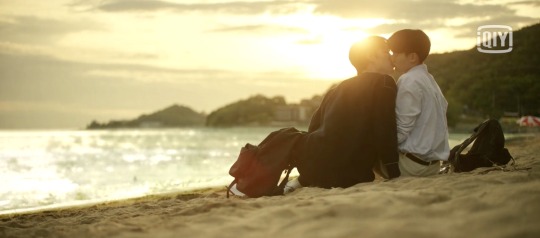
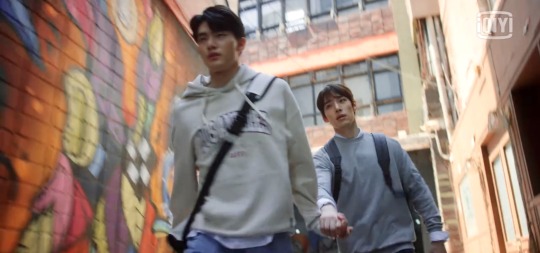
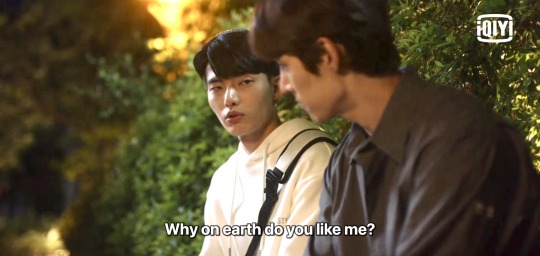

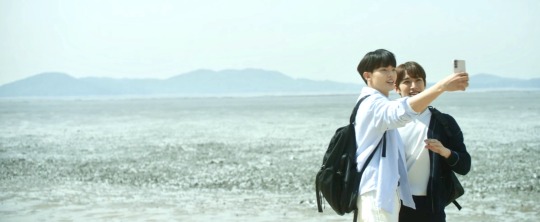

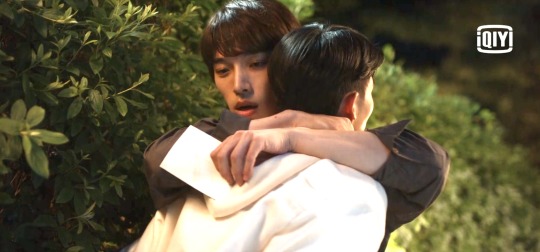
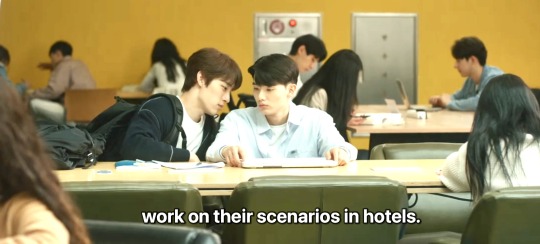
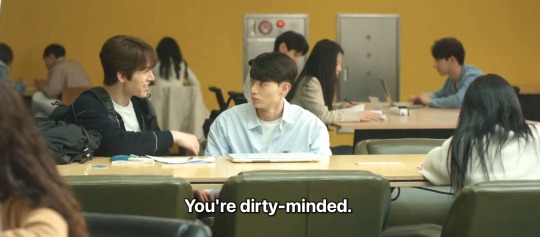
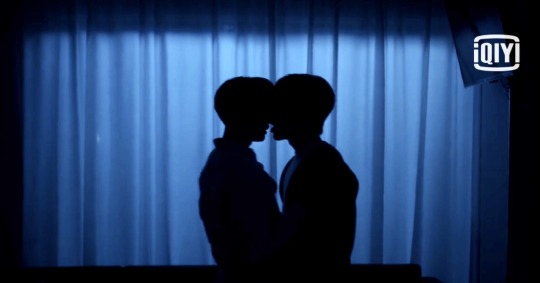
quick pitch
Blueming - 9/10
Korea - March 2022 - iQIYI
Main Tropes: enemies to lovers (sort of), coming of age, self worth and self acceptance, lonely prince, sunshine/tsundere
Adapted from a college-set webtoon, Who Can Define Popularity, and directed by our queen Hwang Da Seul (Where Your Eyes Linger, To My Star) who historically hasn’t had great out-the-gate distribution but Korea’s NEW Film (AKA Next Entertainment World) BL division (yes it has one) announced a massive partnership deal working with Raemongraein (distributor), Kenaz Translations (subs & captions), Myung Films, and GoGo Studio to maximize local and overseas reach prior to Bleuming’s which may or may not have had something to do with it showing up in full on iQiYI for VIP members.
Do you have an umbrella?
No but I have a boyfriend, and that’s kind of the same thing.
The BL equivalent of pockets for het couples.
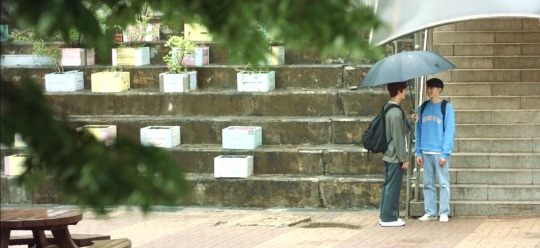
Honestly I wasn’t sure about this going in, and I’m still not entirely in love with it. It’s a tiny bit dark and a tiny bit bittersweet, almost too honest to a university experience and first love for my liking. Not enough of a BL fantasy.
I found the main character, SiWon, pretty unlikable for the first half of the series - even with a believable backstory guiding his superficial behavior. Even knowing that the way he acts covers up insecurities. I would’ve like to see the director take strides to SHOW US the things that DaUn later says he admires about SiWon - kindness, cuteness, softness with perhaps more gentle treatment of his sister? Even his mother? As True Beauty did.
As is often the case with an unlikable uke, I’m not sure why the seme is courting him at all. (See my problems with the first few eps of Secret Crush On You, too.)
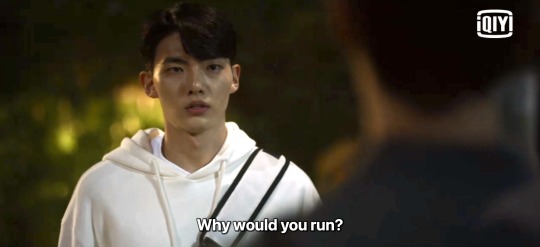
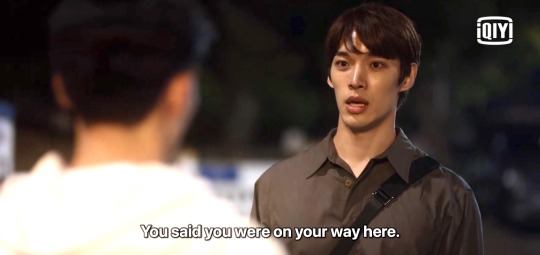
DaWoon’s backstory of lonely prince is a bit too typical to the romance genre but it makes for a good contrast to SiWon’s warm, if superficial and slightly dysfunctional, family life. Sunshine to cover pain is a solid archetype.
Both leads turn in solid performances and by ep 5 this show turned the corner and got really good… for me. The bad guy was really well drawn, all of the characters and portrayals we dealt with honestly and were super believable. Every character was flawed in a different way and I liked that. So this became a narrative about understanding and accepting others people’s flaws without hurting them, and there is nothing wrong with that message.

Korea gave us decent kisses (2022 is the year Korean boys learned how to kiss each other… apparently, I blame the unexpected popularity of To My Star last year). There was even an elegant, and very Korean, sex scene. Not to mention a nice mature apology and makeup sequence. So that, for me, I found the ending quite satisfying.
Ultimately what this show showed us was two characters maturing because of each other and their mutual affection. And that affection was never itself the conflict point (coming out or being gay isn’t really addressed - again, normal for Korea). Instead conflict was built around other aspects of identity, popularity, and self-worth.

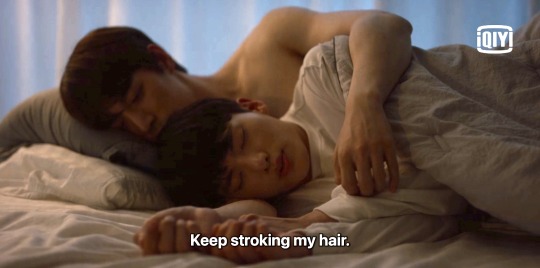
In the end, I actually really liked Blueming, it’s a solid BL. As is expected of Korea, there’s judicious and very elegant use of tropes, but production values are a touch lower than usual.
I was delighted that it had a longer treatment than most, it has about a 3 hour run time, which really allowed the characters time to grow. And also grow on me.
I think I have to give it a 9/10.
ABSOLUTELY RECOMMENDED
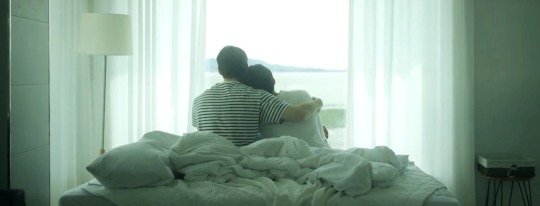
(source)
#korean bl#KBL#K-BL#Kdrama#iQIYI#Blueming#adapted from a yaoi#live action yaoi#bl review#series review#bl series
173 notes
·
View notes
Text
in the past, I struggled to see how Juri fit into the themes of RGU. however, over the past year, clue after clue has helped me to build a better picture of what's exactly going on with her. some Juri thoughts under the cut.
the first interesting thing about Juri is her lesbianism. from that starting point, I moved on to Juri's fraught relationship with "miracles," her "thorns of death" experience. Juri lost something, and now her life revolves around it, like many of the other characters. so far so good.
from there, I asked how she fits into the gender themes of the story. Nanami, as the other supporting female character, more obviously plays into the princess archetypes and the little sister trope. and what’s going on with 28 and 29? why is Juri the only character who gets a completely new duelist introduced for them?
I got started down a path of interpretation when I asked why Ruka’s duel theme is “Angel Androgynous.” paying close attention to those episodes, I began to feel like I understood the point of Ruka; like Shiori, he is a foil for Juri. going further, Juri’s androgyny is emphasized by having these two parallels, male and female, making her a mirror for Utena as well.
at this point, I interpret Juri’s fixation on Shiori as her mourning for her own girlhood and innocence. Ruka has to point out to her that she is misremembering--she was the one who said to believe in miracles. in the flashbacks to their past, Juri is wearing the same girls’ uniform as the other characters; it is only her loss that sets her apart. while Shiori feels inferior for being an “ordinary girl,” that is exactly what Juri desires.
in turn, Ruka is Juri’s masculine side, her animus. like Juri, he pines after an unrequired love. unlike Juri, he is free to do as he pleases--to woo women, to fully execute on his potential. he can also act out all of Juri’s repressed feelings for Shiori, first getting involved with her romantically and then breaking her heart in revenge for what she has done to Juri. he is what Juri denies in herself, yet he does not let her ignore him and demands that she become what he sees in her. it’s like Juri’s subconscious is trying to save her from her own mental cage.
at the end of 28 and 29, Ruka departs as if he was never there, his masculinist stance having failed to reach Juri’s heart. however, she seems to have come to some kind of resolution; Mamoru Hosoda, storyboard artist for most of the Juri episodes, claims:
...She ripped her rose off with her own hand. I think you can interpret it in whatever way you want, but my interpretation is that this was a miracle itself. I mean, wasn’t the fact that Juri’s feelings got released a miracle? Until that moment, Juri’s feelings were something that could never change, something that could never be changed unless some miracle happened. But Juri ripped off her rose by herself. I believe that was the real miracle.
[...]
In the last scene we have Shiori chasing after Juri. Until now it was Juri who was chasing after Shiori, but here we had a kind of reversal phenomenon. And Juri didn’t push Shiori away nor she cared the same way she had till now – she just calmly kept on walking.
[...]
...It’s not that Juri understood Ruka. But she also didn’t think she needed to understand him. Until now she hated him, but she came to able to forgive him a bit, but that’s all.
Juri is able to let Shiori go and forgive Ruka. and she comes to this point by her own power--while Hosoda emphasizes that someone else had to force her hand, she stepped into independence on her own. her girl-self becomes a companion who walks alongside her instead of a constant torment, and her animus is forgiven for his aggression and integrated into the self. Enokido writes that RGU is a story about transcending conflict and possession, and Juri does this by giving up her fight, upon which it is revealed that a miracle is not something to win but something that is given to you when you least expect it, when you have given up all hope.
#revolutionary girl utena#the movie is a whole other can of worms#im still stewing on it#commentary#rgu
135 notes
·
View notes
Text
20 Mistakes To Avoid in Enemies To Lovers
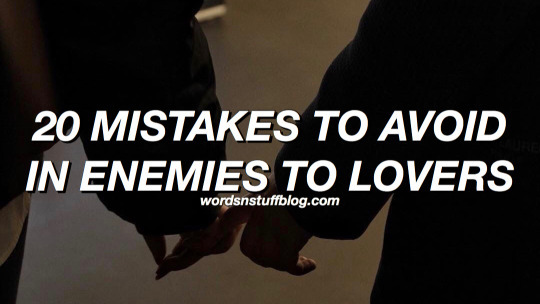
PLEASE REBLOG | Tumblr suppresses posts with links :/
Patreon || Ko-Fi || Masterlist || Work In Progress
–
Weak Conflict
There should always be a strong, compelling source of tension between two people who are considered enemies. Even if their rivalry stems from external sources, such as bad blood between families or competing for a number one spot, there should always be a concrete reason why they hate each other.
Not Explaining Forgiveness
When one of these conflicts subsides, or a tense moment resolves, it should be justified. Tension and emotions shouldn’t disappear because you’re trying to stuff romantic moments in here and there. If one of your characters crosses a line and the other character chooses to forgive them, there needs to be a clear and understandable reason. It doesn’t always have to sit well with the reader. Your character can make a blatantly stupid decision, but it needs to serve the plot.
No Tension To Be Found
If your characters have to verbally or physically assault each other to demonstrate the tension between them, you’re doing it wrong. If they have to kiss for the reader to see that they like each other, you’re doing it wrong. Tension is in the little things. It’s in the instances that most people would overlook, but your characters zero-in on because the subtext is too thick to gloss over. Tension is the most important plot device in enemies-to-lovers stories, so it requires a lot of time and attention to minute details.
Conflict Solved Too Easily
If the rivalry between your characters is one misstep after another, with immediate forgiveness following, the tension won’t build correctly. You’re working your way up to a boiling over moment. A moment where everything comes out and then, once resolved, makes way for the romantic feelings to enter. If the conflicts don’t slowly build on each other, that boiling moment will come out of nowhere and be less satisfying to read. Don’t let your characters off that easily. Enemies aren’t constantly letting things slide.
Characters Changing For One Another
People don’t need to be exactly the same to see attractive qualities in one another. It’s true that relationships shift your perspective and that it occasionally results in outward changes in behavior, but one or both characters shouldn’t mold their personality around their partner.
Stupid Potion
If one of your characters has to become oblivious or avoid critical thought to maintain a relationship with that character, you haven’t made the two characters compatible enough. This is especially true when one or both of your character’s identity revolves around a higher intelligence. They should have enough in common that there doesn’t have to be a giant shift in one or both personalities to work as a couple.
The Relationship Brings Them Down
The thing about enemies to lovers stories is that the happy endings are usually an indication of the author’s view of what is and is not forgivable in a potential partner. The acceptance of someone’s past mistakes, current flaws, and future struggles. When a love story ends with a couple that repeatedly lower each other or hurt each other, that sends a bad message, and that is your responsibility to avoid. It doesn’t need a happy ending, but it should never have a destructive one.
Writing Abuse Instead of Rivalry
There is a big difference between writing two equals who have a rivalry slowly falling in love and putting aside their differences, and writing an abusive, predatory love interest who repeatedly hurts, manipulates, and gaslights the main character. Just because you can imagine the character forgiving them doesn’t mean they’re a good partner. Cheating, physical abuse, isolation, passive aggression, and manipulation are not character flaws. They’re not “mistakes” that the character needs to forgive in order to save their relationship. It’s abuse, and when you write a story between an abuser and a victim that has a happy ending, that has consequences.
Revealing Feelings In A Cliché Way
This is very subjective, however, there are also a plethora of tropes to choose from and an infinite amount of alterations you can apply to make them your own. The objective, however, is to build up to it in a way that creates a satisfying payoff, and an interesting moment that serves all of the work you’ve done to build to it. There’s nothing worse than reading chapters and chapters of build up, anticipating a big moment where sparks fly, and then having all of that tension result in a sad sputter of mediocrity.
Instant Trust
Trust is difficult to build between two people, especially when they have a complicated past. Trust is earned, no matter who you are or what you’ve been through, it’s always a process. It’s never inherent. When two characters have a history of betrayal or hurt, trust is going to be even harder to develop between them, and that process is an opportunity for more tension, character development, conflict, and eventually a satisfying resolution. Trust development is a major plot device, and I recommend you take advantage of it. It’s also a huge opportunity for building romantic tension amongst the angst of trials and tribulations.
Why Do They Hate Each Other, Though?
There’s a thin line between love and hate, and that line is infatuation; obsession. So, what put the two of them on the bad side of that line? This reason is the main conflict. The overarching plot begins with the point where that rivalry either begins or is challenged after a long while of stagnation, and it ends with the two characters crossing over that line into love. You need to make that beginning point very clear.
Rivalry Shouldn’t Just Dissolve
There needs to be a transitionary period that is tense and awkward with scattered moments that make the effort worth it to both of them. There should be a “Well, we hated each other last week and then they did some really sweet things and now I’m not so sure. Maybe we’re starting to become friends now? I feel really excited when I see them, so I must not hate them anymore, right?” period.
Complete Opposites
Yes, opposites can attract. Yes, completely different people can fit together very well and have a happy relationship, but this is a cliché and is, in most cases, poorly thought out with little to no originality.
Love With No Reason
Just like your characters need a reason to hate each other, they need a reason to love each other. There has to be something that makes them work. Not just a common hobby or characteristic or exterior aspect they share, but something that makes them fit together. If they love each other because... they can, your reader will feel like they’re watching two stupid, lonely people tolerate each other’s flaws in the interest of sex or companionship for 100 pages.
No Actual Conflict Resolution
Relationships are built through conflict resolution. Communication, empathy, effort, and understanding between two people who work to make each other happy. Hollow forgiveness is not apart of that process, and if that’s all there is, you’re not developing a realistic relationship between compatible people, you’re depicting a toxic relationship that, in the case of these origins, can be abusive.
Underusing Sexual Tension
Sexual tension is great. It’s easy to develop, it has a satisfying payoff, and it doesn’t take up a lot of space on the pages. It doesn’t have to result in x-rated material, especially if you’re writing for a young adult audience, but it’s simple and effective.
No Awkward Transition Period
A large chunk of the plot should be awkward and uncomfortable to watch. The transition should be organic and make sense for your characters, but all organic movement contains struggle. Nobody goes from hating each other to loving each other overnight, and relationships are complicated and require hard work. Show this.
Catalogue Characters
There are enough stories out there with cardboard characters and self-insert protagonists, especially in romance. Make your protagonists unique and individual. Make your characters diverse and interesting to read about. Readers should have a bit of wiggle room for imagination, but that doesn’t mean they should be filling in the blanks like your characters are Mad Libs. Don’t close your eyes and point at character archetypes to form your cast. It’s obvious and lazy.
Stagnant Tone
The tone of these stories often falls flat because in the interest of building tension, writers ignore purposeful tone shifting, scene-to-scene. Change it up, make it potent, and make a lasting impact during important moments. Suspense and anticipation shouldn’t just build during the climax and resolution.
Bad Pacing
When your readers spend hours reading a story that promises a romantic payoff, they expect to see some of it. I think that a three act structure is really effective with this type of arc, with the first third being devoted to building rival tensions, the middle third being the shift from rivals to friends, and the last third building that romantic tension and ending with a happy resolution.
–
Masterlist | WIP Blog
If you enjoy my blog and wish for it to continue being updated frequently and for me to continue putting my energy toward answering your questions, please consider Buying Me A Coffee, or pledging your support on Patreon, where I offer early access and exclusive benefits for only $5/month.
#writing#writeblr#writespo#writing tips#writing resources#resources for writers#writing advice#writing help#writing inspiration#inspiration#motivation#tips#help#advice
2K notes
·
View notes
Text
My favorite example of Narrativium in Thunderbolt Fantasy is when Juan Can Yun manages to navigate his way through the Labyrinth of Darkness without the macguffin the party spent several episodes trying to acquire because he marked a path on the way in. Every time I get to that point, I mutter "this is utter bullshit" and every time I'm won over because it just works and lets us move on to the next thing rather than getting bogged down in details. Ditto for the Spirit Veins in the trees, which turn up once and never again--it's so awesome and convenient, it automatically bypasses any objections my brain might raise. (Or as the Madoka Magica meme goes, "It's magic, bitch, I don't have to explain shit".) Truly inspiring.
Like Lian Qi, I think Xie Ying Luo is Doomed by the Narrative, in the sense that there is no way for her to win from the moment of her introduction. She chooses pride over expediency by trying to kill Shang instead of running off with the Index, as Shang himself notes. That's the moment it all goes to hell in a handbasket for her; the rest is one long slide to rock bottom via Ironically Appropriate means. And when she tries to get up again, the narrative crushes her like a bug.
Does that mean she shouldn't have tried, though? I don't know if it's that simple. Xiao Kuang Juan died as he lived--trying to cozen up to someone to get them to do the dirty work for him--and it did not save him in the end. Ditto for Lou Zhen Jie, who ultimately got a happy ending (for him, anyway--Lou Zhen Jie heaven is Zhao Jun Lin hell. It's a very efficient system). Thunderbolt Fantasy is a harsh world for NPCs and villains and side characters alike--I'm still impressed that Wan Jun Po's men managed to survive Season 3 given the mass casualties in Season 2. The determining factor seems to be whether any given character is more valuable to the narrative alive or dead, but that's not necessarily information the characters themselves have access to.
Re: "Xie Ying Luo Lives" AUs, I 100% agree, and the only reason I haven't written something like that myself is because it so wildly diverges from the narrative it stops being a Thunderbolt Fantasy story and starts being something else instead! I did write an AU that played with what her fate might be had she lived in a different way, as well an AU in which she revisits her choices in the afterlife, but I have not yet figured out the right approach for the kind of story you describe, though it haunts me.
This question of fighting fate/the narrative (in a story, is there really any difference?) is a central preoccupation of many of Urobuchi's works, but it meshes especially well with budaixi conventions and genre tropes. Puella Magi Madoka Magica also has its share of theatrical elements and magical girl archetypes, but I agree that the character poems explicitly make this textual in a way that I rarely encounter in other media.
That said, while Urobuchi has a deep love for and knowledge of, budaixi conventions, Thunderbolt Fantasy appears to play with them in interesting ways. This can be seen in the presentation of the character poems, which do not necessarily appear when a character is introduced, but when their true self is revealed. Thus, Juan Can Yun's poem only appears when he chooses pride over expediency and Dan Fei over Shou Yun Xiao; Lin Xue Ya's when his duplicity is exposed; and Shang Bu Huan's at the very end of Season 1. Before that, we can watch them in action, but we don't truly grasp who they are because we are missing important pieces. Traditional conventions are simultaneously maintained, yet fluid.
That said, I agree that Xie Ying Luo and Lang Wu Yao appear to challenge this particular convention by "growing beyond" the worldviews implied in their poems. Xie Ying Luo's is "solved" by erasing her from the narrative (sob!) while Lang Wu Yao's fate is more open.
Based on what Urobuchi has said in interviews, Lang's personality is not "fixed" in the same way that Shang or Lin's is; he has not yet discovered his purpose in life. I think for Lang the ultimate key to maturity is the realization that good and evil are not as different as he originally assumed, and that on some level (either literal or metaphorical) humans and demons are fundamentally the same. This show being what it is, my bet is literal, but that's something S4 will likely address.
We see a similar version of this with Juan Can Yun and Lin Xue Ya in S3, actually:


Of course, Lin's entire character poem is all about how truth and lies are two sides of the same coin, so he would say that, wouldn't he... but Lin is generally right about these kinds of things; as far as I can tell, he always tells the truth, albeit from "a certain point of view". "Things that seem like they're different turn out to be the same" is a running theme of Thunderbolt Fantasy in general, so I feel reasonably confident in predicting it will be true for Lang's situation as well. He will fix the disharmony within himself and gain power and freedom (from his father, if nothing else) as a result; it will re-affirm his character poem instead of changing it because the dichotomy that was causing the discord is resolved. "I accept the good and the bad, the human and demonic, and they are not separate" feels like the only possible answer to the paradox he's confronted with.
I think Lang's arc will end better than Xie Ying Luo's, if only because he is a protagonist, and I don't think his story is ultimately a tragedy, though it has no shortage of tragic elements. Even though Thunderbolt Fantasy is not a romance, Lang Wu Yao strikes me as a romantic hero in a coming-of-age story, even if his love interest has been mostly sidelined thus far. Given that his arc in Bewitching Melody was about seizing control of his own fate, I think he will continue to build upon this framework in the future.
Or to put it a different way, I think Lang will survive by virtue of genre expectations.... the question being "which genre and is it the one we thought we were watching?" Are the characters passive victims of the story/narrative (i.e., fate) or can they create it and/or shift the audience's perceptions of it? Does the tail wag the dog or vice versa? Will our expectations be borne out or will they be subverted in a satisfying manner instead?
We'll find out, but my money's on Shang ultimately being right because he's the hero and all (in keeping with genre expectations, of course). Lin Xue Ya will also be right, because life is tricky like that, and because he and Shang, like light and dark or truth and lies, are two halves of a whole, which is why the story began with them coming together and I think it will end with them departing together on a new adventure. But there is a great opportunity for meta-narrative awesomeness--simultaneously adhering to genre conventions yet challenging them--and I can't wait to see how it all shakes out.
I like that you mention "ethos", because the Crunchyroll translation has Lin Xue Ya use that word when he's discussing the kind of things he likes to steal--to understand who that person is so thoroughly that he can take from them the thing that gives their life intrinsic meaning. Of course, it keeps backfiring on him, either because he doesn't truly understand them in the first place, or because his victims decide to get back at him where it hurts, but so much of Lin's power comes from being genre-savvy; as a storyteller in-universe, he knows narrative cues when he sees them, to the point of being able to tap into them for his own purposes (i.e., the Nendoroid phone). The ending of Bewitching Melody of the West where he breaks the fourth wall with information he should not have access to at that point in time gets me every single time, because it's just so damn meta, and raises some fascinating questions about who and what he really is. Out of everyone in the cast, Lin Xue Ya is the one most aware of the power of narrative, and how it is stronger than any sword, and this is a huge part of what makes him so effective and compelling.
But to build on your last statement, I would say that while audience expectations and authorial skill are indeed more powerful than weapons and warriors, the most powerful force in Thunderbolt Fantasy is ultimately the author's love for their characters, their world, and the story that they're telling, from which everything else arises.
Some Thoughts on Power Levels in Thunderbolt Fantasy
@jafndaegur got me thinking about this, so strap in because this is a long one!
tl;dr: Narrative casuality is linear for characters and the audience, and non-linear for writers and analysts; power levels in Thunderbolt Fantasy are a perfect illustration of this, thanks for coming to my TED talk.
Fight scenes are a major component of Thunderbolt Fantasy, but who wins and who loses is determined less by the absolute power levels of the respective parties, but by the needs of the narrative. There's a tendency to think of it as the other way around because that's how it initially appears to us as viewers--we see the outcome and think one caused the other. However, this is an illusion caused by the way we experience media. From a structural and compositional standpoint, the reverse is true--the story dictates the outcome, not the other way around.
For an example, let's look at Lian Qi's ill-fated fight against Sha Wu Sheng in Season 1. On the surface, it looks like Wu Sheng is considerably stronger, since he was able to kill Lian Qi in one blow. However, consider that Lian Qi's death is required for the story to work--if he survived and Wu Sheng didn't, it would be a different story entirely! This isn't what is usually meant by the phrase "doomed by the narrative," but in this case, it's an accurate description of the situation--there is no power level Lian Qi could possibly possess that would save him from Wu Sheng, since Wu Sheng's presence is required for the story as it stands to work.
Lian Qi's narrative role is to serve as a sacrificial lamb for Wu Sheng--that's his one (1) job and he's very good at it. We know that Wu Sheng is powerful, because he was able to effortlessly destroy a man of considerable skill and power whom Lin Xue Ya had just spoken highly of in the preceding scene. Saying that this means that Wu Sheng is thus a stronger fighter may be true, but it's not particularly interesting as an isolated factoid; what matters is what the fight reveals about the characters (that Wu Sheng is ruthless and determined) and how it advances and serves the story (gets him the Soul Echo Flute and a chance to reunite with Lin Xue Ya).
In other words, strength/power is correlated with victory, but correlation is not causation, even though we tend to interpret it as such because we experience narratives linearly, where cause comes before effect.
The other important thing to consider is that characters in Thunderbolt Fantasy are not simply discrete individuals--they also represent specific moral or philosophical positions. When they clash, the "strength" of the character has as much to do with the strength of this position as it does their physical prowess. This is true for most if not all of Gen Urobuchi's works, but it's more explicitly textual in Thunderbolt Fantasy, because in-universe, the character's "sword" is viewed as an extension of the self; it is primarily through conflict that this self becomes fully revealed.
Perhaps the best example of this is Lin Xue Ya's fight with Mie Tian Hai, in which the latter is fighting to preserve his philosophy that strength through the sword can only be attained a certain way. His physical defeat and the shattering of that worldview occur simultaneously; furthermore, his identity is so wrapped up in this particular point that he immediately kills himself in response.
[As an aside: Mie Tian Hai's suicide out of spite is foreshadowed by Can Xiong doing the same thing in the first episode when Shang Bu Huan defeats him. Can Xiong is not merely a loyal subordinate; he is enacting the teachings embodied by his master. Say whatever else you will about Mie Tian Hai, at least he isn't a hypocrite--he practices exactly what he preaches. There's a reason I refer to the Xuan Gui Zong as a "death cult"!!]
Taken together, these two factors--narrative purpose and philosophical position--provide a useful framework to make sense of conflict, and thus power levels, in Thunderbolt Fantasy. Here are a few examples:
-Shang Bu Huan vs. Lang Wu Yao in Bewitching Melody of the West -- Shang is older and more experienced than Lang in many respects, so it makes sense that he would win out here. However, what settles his victory isn't his physical skill, it's his moral clarity and sense of purpose; he knows who he is and that his cause is righteous.
Meanwhile, Lang is powerful, with martial arts from his unique upbringing combined with the magic of his innate heritage, but he is also confused and morally compromised through his allegiance to the corrupt Xi You imperial court, which ultimately gives Shang the upper hand. Note that this fight ends when Shang directly calls out Lang's ideas of good and evil, and Lang loses the will to continue; his doubts and uncertainty make it impossible for him to win. The climax of the movie is Lang coming to an emotional realization and gaining a corresponding power-up/magical boy transformation to go with it. Changing his philosophy increased his strength, not the other way around!
As Season 2 demonstrates, Lang's narrow-minded focus on good and evil have not changed by the end of Bewitching Melody, he's just altered the definitions so that Shang is now one of the good guys, and taken agency over his decisions instead of being a mindless tool for anyone else. This rigidness will continue to hold him back until he adopts a broader and more mature philosophy. This is especially important, because the Huo Shi Ming Huang fight in S3 demonstrates vividly that Lang's powers are fueled by his emotions; when unchanneled, he is capable of incredible destruction. (There's so much about that scene that is wonderful from an analytical standpoint, but my favorite part is Ling Ya muttering, "Oh, buddy, no" [paraphrase] right before all hell breaks loose; Ling Ya, as Lang's self-appointed mouthpiece, knows what's up.)
-Speaking of Huo Shi Ming Huang, the flashback in S3x06 is one of the few times we've ever seen Shang on the back foot. Not coincidentally, this fight is also characterized by Shang's hesitation and doubts as to the best course of action, which create a cascade of consequences leading to a Bad Ending of Mu Tian Ming's blindness and Shang's subsequent departure from Xi You. I've written elsewhere about how this outcome is also narratively determined in advance by the events of Season 1, which were written first even though they occur later in-universe, to the point where there's an entire mini-arc devoted to showing just how necessary this particular loss was; for better or worse, the entire story of Thunderbolt Fantasy rests on it.
-Xie Ying Luo vs. Shang Bu Huan in S2x09, "The Path of the Strong" - Up to this point, Xie Ying Luo's fighting style has been the opposite of the standard wuxia code of honor--she uses illusions and poisons and takes hostages rather than fight one-on-one. As Lin Xue Ya wryly points out in 2x04, this is the best way of dealing with a powerhouse like Shang Bu Huan (he even says it would be how he'd take Shang down!!!) but it's strongly implied that Xie Ying Luo relies on these methods because she doubts her own strength. [How much of this is due to misogyny is unclear, but there's no question it's a factor; Ba Wang Yu's character in S4 suggests she has taken the opposite approach to the same systemic forces with her emphasis on physical strength.] Xie's arc is characterized by her uncertainty and doubts, which send her on an increasing downward spiral (exposure to Di Kong's nihilism does not help!); even wielding Seven Blasphemous Deaths isn't enough to overcome it. However, after freeing herself from the demonic sword's thrall, Xie Ying Luo makes the unexpected decision to fight Shang one on one with her sword, something she has spent the entire show up to this point avoiding.
This makes no goddamn sense from a tactical perspective, but it's not about tactics or even victory. On a practical level, Xie Ying Luo is saving face--she knows she can't win, but if Shang defeats her and takes Seven Blasphemous Deaths, she can at least say that she didn't completely abandon her duties. She may have lost the fight, but she retains her honor, even if it means she can never return to Huo Shi Ming Huang's service.
Shang recognizes this, which is why he is so gracious to her after her defeat--he respects the courage it took to show up in the first place, and encourages her to redefine what it means to be strong in the first place. Again, we return to the idea that true strength isn't physical prowess, but moral clarity and certainty, which Shang possesses in abundance--and is also willing to pass along to others. Season 2 goes to a lot of effort to demonstrate Shang's mercy and compassion are strengths, not weaknesses, and this scene is further evidence of this.
Shang also believes that fate is not fixed and that people are capable of growing and changing if they choose to do so, which again gives him power over those like Sha Wu Sheng and Lou Zhen Jie, who believe themselves to be instruments of inevitability. (This is also what makes Shang Bu Huan endlessly surprising and therefore interesting and entertaining to Lin Xue Ya, but that's a whole 'nother story.) Unfortunately, Xie Ying Luo is tragically murdered by the very weapon she gave up (and by a man she trusted!!) and never gets to fully realize this, but she tries, damn it, even if it wasn't enough to save her in the end. This is one reason why Lang Wu Yao buries her even though they were enemies, because on some level he recognizes and honors that attempt, despite the fact he wasn't there to witness exactly what transpired.
I should also point out that while moral strength is a source of power, it's not the be-all, end-all--one reason why Lou Zhen Jie is so terrifying is because he no longer doubts. His logic and reasoning might be unsound, but he is so single-mindedly focused on his goal that he can plow through any obstacle single-handedly (pun intended). This is also what makes him such a great foil to Shang Bu Huan on multiple levels; Lou Zhen Jie is what would happen if Shang were evil/misguided/less ethical than he actually was. This is why Shang fighting alone can match Lou Zhen Jie but cannot win without something else to tip the scales.
Here's a fight that's interesting precisely because it didn't happen: Lin Xue Ya vs. Sha Wu Sheng. One reason why Lin Xue Ya refuses to fight Sha Wu Sheng at any point in Season 1 is that it would require Lin to reveal himself openly and intimately in a way he has no desire to do. Furthermore, it would also clash with the needs of the story, i.e., the big reveal of Lin's abilities in the final episode. Lin is so confident in his own abilities that he has no need to "prove" himself by fighting; just as his narrative foil Shang has no need to "prove" his own strength by picking stupid fights and does everything he can to avoid them. The primary difference between the two is that Lin spares his enemies so he can savor their suffering, while Shang spares his enemies so they can do better in the future.
This is why Shang repeatedly and emphatically insists that he and Lin have nothing in common--he sees the commonalities but the differences repel him even more because of it. Note that Shang indirectly critiques Lin's approach when he tells Xie Ying Luo that a truly strong person can spare someone's life and not have them come after him in revenge.... in essence, arguing that Lin's whole approach is fundamentally misguided. (This is also the second time he's done this in conversation with Xie Ying Luo; the first time was in 2x01 when he unfavorably compared her technique to Lin's. For someone who claims to want nothing to do with this guy, he sure thinks about him a lot!) Shang also has no intention of killing Lou Zhen Jie in the climax of S2; all he wants is to take Seven Blasphemous Deaths away from him.
[This leads to fascinating questions like "How will Shang deal with Huo Shi Ming Huang?" and "Can the guy who believes in the supremacy of fate and seeks to become Fate itself ever break free of it?" which I think we'll see in the final movie, so TBD.]
I'll also note that there is a tendency in modern storytelling to have power as the limiting factor for characters, whereas myths and epics give their characters free reign to do whatever they want, and as a story about archetypal characters with superhuman abilities, I think Thunderbolt Fantasy leans more towards the latter in many respects. Characters have exactly enough power to do what narratively needs to get done, no more and no less, so in that sense, it's a very efficient system.
I'll stop here because this is very long and rambling and I think I've demonstrated my point: for something so seemingly obvious and matter of fact, "strength" and "power" in Thunderbolt Fantasy, let alone comparing that of one character to another, is far more challenging than it appears on the surface, and contingent upon both the character's moral stance and the larger narrative of which they are a part. It's both deeper and far more interesting than "Character X is stronger than Character Y" (even if character X is stronger than character Y!).
#thunderbolt fantasy#wuxia fantasy puppet epic#tbf meta#conversations like this are why I love fandom so much#we're all playing in the same sandbox and having a blast trying to figure out what it all means#deep thoughts about puppets
17 notes
·
View notes
Note
Something I'm curious to get your opinion on: I was reading a forum on With The Will on character archetypes, specifically on the "Sixth Ranger" trope in Digimon (like Hikari, Ken, Kouichi, Ikuto, Yuu, and Yuujin). There doesn't seem to be any consensus on who the sixth would be for Tamers; Ryou & Cyberdramon or Impmon. I use to say Ryou, but now I think Impmon fits best, since technically speaking Ryou isn't a Tamers character. I'm wondering what do you think.
The tl;dr answer: I don't think it has one in the first place.
The longer explanation: My stance towards things like archetypes is that one should make use of them "as long as they're helpful", and that it doesn't really help anything to get so obsessed with classifying the characters by archetype that you defeat the purpose of why you wanted to classify them to begin with. Archetypes help to compare characters, but if you're at the point of trying to force a square peg into a round hole just to say that this character counts as the archetype, at that point it might be better to accept that it was so outside the usual setup to begin with that it doesn't merit comparison. This is also why I tend to exclude Xros Wars a lot when trying to compare Digimon protagonist groups; it's not me wanting to be exclusionary, but rather me feeling that it wouldn't really be respecting Xros Wars' unique setup and way of organizing its characters if I tried to cram it into a structure it was deliberately made to not follow.
The concept of a "sixth ranger" comes from Super Sentai (and by extension Power Rangers), and it is undeniably true that Digimon's way of having teams with variations on the same power set takes a lot from Sentai, which is why situations like Hikari and Ken resemble the concept so much. But let's take a look at the explanation of "additional warrior" in the Sentai context as defined by Pixiv's wiki via the tenets you generally expect of one:
Was not present at the time of initial production announcement, or if they were, was not announced as part of the protagonist team
Usually shows up in the middle of the series in order to change things up once the tone has been set, although not always since it depends on toy sales schedule
Usually has different motives, origins, or powers from the original team
Usually causes some kind of drama dynamic with the rest of the team in terms of what happens when they try to integrate themself with them
…so as you can see, these tenets are looking at them in a broad, production-based or structural view instead of being too married to their role in the story. This is probably because Super Sentai has been running for so long with such variety in series that these kinds of production circumstances are the only thing these "additional warriors" have in common at this point. The concept has also carried over to Toei's magical girl series PreCure (known as "additional Cure"), with pretty much the exact same idea. But if you look at what's being suggested here with these points, the answer probably is Ryou; even if he's not originally from Tamers, the version seen in Tamers is functionally treated as a Tamers character, and in terms of having an ability set comparable in power and structure to the main cast, he checks off those boxes.
Obviously, that doesn't really make a lot of sense from a story perspective; as you said, Impmon has more relevance in Tamers' narrative, and this is what I think is an example of the limitations of trying to square-peg-round-hole an archetype and structure into something not built for it. Tamers already gets this with the question of who's the "rival"; I know people like to insist it's Ruki because she has a cold attitude and is associated with blue, but I think this also ignores the fact she never actually ends up establishing a particular dynamic with Takato in the way Jian does, and in the end the Tamers trio is really a trio (more on my ambivalent feelings about the "rival" concept here). And even with Ryou in play, unlike most Digimon media that's usually diligent about including their "additional warrior" in post-series merchandise, there's still quite a significant amount of modern Tamers merch that singles out the trio as a trio without anyone else, implying characters like Ryou and Impmon were more “guest helpers” than core members of their groups. So if you wanted my really honest answer about who the "sixth ranger" or "additional warrior" in Tamers is, it's that it simply doesn't have one nor does it have the Sentai structure to begin with to merit that comparison. Any potential response to this requires enough forcing that I feel it's missing the point.
On that note, I don't even feel like I agree with the concept of Yuu being of the sixth ranger/additional warrior archetype in Xros Wars either, considering he never truly "joined" the team until Hunters (where he was definitely announced in the initial production lineup). Xros Wars doesn't use the Sentai format to begin with. In fact, I get the impression Xros Wars is more significantly inspired by Toei's other series Kamen Rider (of which Xros Wars' head writer Sanjou Riku is known to have written some landmark entries of). I'll leave this more to the Rider experts reading this post to chip in on how they feel about it, but Rider doesn't typically use a "team" structure, with its individual Riders being more likely to simply have clashing ideologies of differing natures (there is a concept called the "Second Rider", which has had its own discourse, and its Xros Wars analogue would probably be Kiriha, but trying to force a comparison to Sentai would be messy because a Second Rider can be equivalent to a "rival" or an "additional warrior" depending on the series).
Personally, when I was a kid watching Digimon and wasn't incredibly good at analysis, I did make the observation "Digimon series really seem to like having a prominent character that starts off as an enemy but joins the protagonists later" (TV Tropes, invoking pro-wrestling lingo, calls this a "heel-face turn"). Even now, I find this to be more useful, because it's much more broad and less restrictive than the "sixth ranger" concept but still allows you to make ample comparisons between how each of these characters started off and under what circumstances they ended up turning. (In this case, the characters in question would be Tailmon, Ken, Impmon, Kouichi, Ikuto, all of Nene/Kiriha/Yuu but probably mostly Yuu, and Rei.) Even with characters who are clearly more of "sixth rangers" like Ken or Ikuto or Yuujin, the circumstances of how they join are often so different that comparisons aren't really all that useful and don't say as much about their characters. (Of course, this is just my way of seeing it to the very end, and I don't have any negative feelings about anyone else seeing more worth in it.)
12 notes
·
View notes